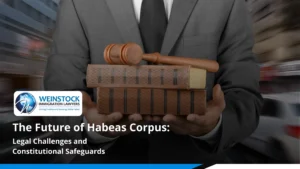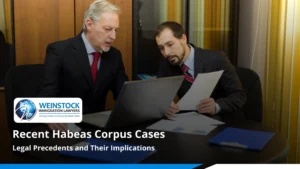USCIS Announces Public Charge Rule Implementation.
The Final Rule, issued in August and originally scheduled to be effective in October, prescribes how DHS would determine whether an alien is inadmissible to the United States based on the alien’s likelihood of becoming a public charge at any time in the future, as set forth in the Immigration and Nationality Act. The Final Rule also addresses USCIS’ authority to issue public charge bonds in the context of applications for adjustment of status. Finally, the Final Rule includes a requirement that aliens seeking and extension of stay of change of status demonstrate that they have not received public benefits over the designated threshold since obtaining the nonimmigrant status they seek to extend or change.
“Self-sufficiency is a core American value and has been part of immigration law for centuries. President Trump has called for long-standing immigration law to be enforced and U.S. Citizenship and Immigration Services is delivering on this promise to the American people,” said Ken Cuccinelli, the Senior Official Performing the Duties of the Deputy Secretary for DHS. “By requiring those seeking to come or stay in the United States to rely on their own resources, families and communities, we will encourage self-sufficiency, promote immigrant success and protect American taxpayers.”
Except for in the State of Illinois, USCIS will only apply the Final Rule to applications and petitions postmarked (or submitted electronically) on or after Feb. 24, 2020. For applications and petitions that are sent by commercial courier (e.g., UPS/FedEx/DHL), the postmark date is the date reflected on the courier receipt. The Final Rule prohibits DHS from considering an alien’s application for, certification or approval to receive, or receipt of certain non-cash public benefits before Oct. 15, 2019, when deciding whether the alien is likely at any time to become a public charge. In light of the duration of the recently-lifted nationwide injunctions and to promote clarity and fairness to the public, DHS will now treat this prohibition as applying to such public benefits received before Feb. 24, 2020. Similarly, the Final Rule prohibits DHS from considering the receipt of public benefits by applicants for extension of stay and change of status before Oct. 15, 2019 when determining whether the public benefits condition applies, and DHS will now treat this prohibition as applying to public benefits received on or after Feb. 24, 2020.
USCIS will post updated forms, submission instructions, and Policy Manual guidance on the USCIS website during the week of Feb. 3, 2020, to give applicants, petitioners, and others ample time to review updated procedures and adjust filing methods. After Feb. 24, 2020, everywhere except in the State of Illinois, USCIS will reject prior editions of forms if the form is postmarked on or after Feb. 24, 2020. If USCIS receives an application or petition for benefits using incorrect editions of the forms, USCIS will inform the applicant or petitioner of the need to submit a new application or petition using the correct forms.
USCIS will continue to release information through its website in the weeks leading to the rule’s implementation date, including in the event that the injunction Illinois is lifted. This will include an update to the USCIS Policy Manual.
In the coming weeks, the agency is planning to hold a public engagement for immigration attorneys, industry representatives, and other relevant groups to discuss the final rule.
DHS remains enjoined from implementing the Final Rule in the State of Illinois. Should the injunction in Illinois be lifted, USCIS will provide additional public guidance.
Originally published by USCIS: https://www.uscis.gov/news/news-releases/uscis-announces-public-charge-rule-implementation-following-supreme-court-stay-nationwide-injunctions?fbclid=IwAR3v5dHxPwv9JYVSye0Ly6Ga–lyaP-ZPXeIOjMGuj3OZrypKi0KuhT16O4
Related posts

The Future of Habeas Corpus: Legal Challenges and Constitutional Safeguards
Summary The blog explains how habeas corpus, a fundamental legal right enshrined in the U.S. Constitution, ensures protection against unlawful detention. It highlights the current

Can Entrepreneurs and Business Owners Qualify for a TN Visa?
Summary If you’re a Canadian or Mexican entrepreneur living in the U.S. or planning to launch a business here, you may be wondering: Can I

Recent Habeas Corpus Cases: Legal Precedents and Their Implications
Summary The article explains how recent habeas corpus cases, including Rivers v. Guerrero and W.M.M. v. Trump, have significant implications for the interpretation of the
